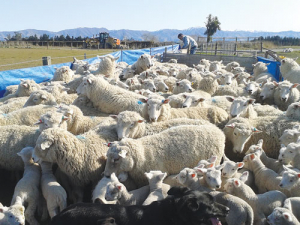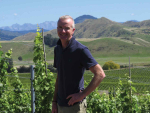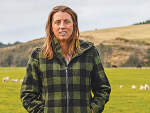Sheep farmers have had better lambing than expected this year, with percentages up, though the lamb crop was smaller overall due to fewer ewes mated.
The latest Beef + Lamb New Zealand figures reveal a 2.1% rise in average lambing percentages, with 123 lambs born for every 100 ewes. It says ewes were in good condition, there was enough spring feed and more lambs were born from hoggets.
However, BLNZ economic service chief economist Andrew Burtt estimates some 23.7 million lambs were tailed this spring, from a breeding ewe flock that was down 3.1% on last year.
“The smaller ewe flock occurred with the shift towards cattle production and the impact of facial eczema in North Island regions,” Burtt says. “Farmers read the climatic signals and made decisions early and the lamb crop result reinforces the impact of those management decisions.”
North Island lamb numbers were not only affected by the impact of facial eczema on breeding ewe condition and numbers, but also by wet conditions that hindered lamb growth rates, Burtt adds.
However, lamb numbers in the South Island were slightly ahead of last season because of good weather, improved lamb thrift and a lift in ewe lambing percentages. These factors combined to offset a decrease in breeding ewe numbers.
Burtt says countrywide there was a 1.3% drop – or 0.3 million fewer lambs – than last year.
In the North Island, 11.3m lambs were tailed – down 0.3m on last year, but this was up on 2013’s tally. Meanwhile, 12.m lambs were tailed in the South Island.
Burtt says 19.4m lambs will be available for export in the 2016-17 season, down an estimated 2.7% on last season’s 19.9m.
“Lamb export receipts for 2016-17 are estimated at $2.5 billion, slightly down on the previous season.”











